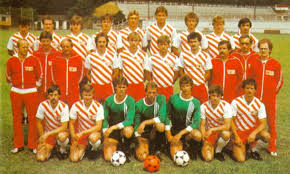Introduction
Wolfsburg, a city in Lower Saxony, Germany, is renowned as the global headquarters of the Volkswagen Group. Its significance extends beyond the automotive industry, as it uniquely combines history, culture, and innovation. The city’s development, directly linked to Volkswagen, represents not only the industrial might of Germany but also a narrative of urban planning and socio-economic growth.
Historical Context
Founded in 1938, Wolfsburg was established specifically to house the workers of the Volkswagen Factory, which was initiated shortly before World War II. Originally named “Stadt des KdF-Wagens” (City of the Strength Through Joy Car), the city embodies the legacy of modern automotive engineering. The post-war period saw tremendous growth as the Volkswagen Beetle became a symbol of prosperity and mobility across Europe.
Modern Significance
Today, Wolfsburg is not just an automotive city; it has become a vibrant urban area with a population of over 125,000 inhabitants. The economy is primarily fueled by the automotive sector, but the city also strives to diversify. The establishment of the Autostadt, a visitor attraction that highlights the automotive experience alongside exhibitions, museums, and educational centers, has made Wolfsburg a center for tourism and innovation. In 2023, the Autostadt reported over 1 million visitors, showcasing the city’s growing appeal beyond traditional industrial roots.
Current Developments
Recently, Wolfsburg has made headlines by committing to sustainability initiatives. Volkswagen aims to become a leader in electric vehicles by 2025, with plans for extensive charging infrastructure across the city. Additionally, ongoing projects that promote green spaces and renewable energies reflect the city’s efforts to adapt to global environmental challenges. The city received €10 million from the German government to enhance public transport and cycling infrastructure, further showing its commitment to sustainable urban living.
Conclusion
Wolfsburg stands as a testament to the evolution of an industrial city that has embraced modern challenges through innovation and sustainability. As it progresses towards a greener future, Wolfsburg not only retains its title as Germany’s automotive heart but also emerges as a blueprint for other cities undergoing transformation. For residents and visitors alike, Wolfsburg offers a unique blend of history, modernity, and a glimpse into the future of urban living.


